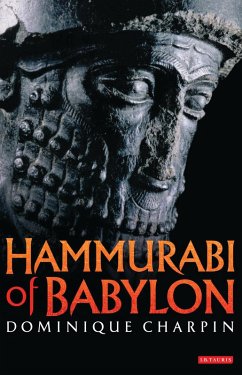Hammurabi was the sixth king of ancient Babylon and also its greatest. Expanding the role and influence of the Babylonian city-state into an imperium that crushed its rivals and dominated the entire fertile plain of Mesopotamia, Hammurabi (who ruled c. 1792-1750 BCE) transformed a minor kingdom into the regional superpower of its age. But this energetic monarch, whose geopolitical and military strategies were unsurpassed in his time, was more than just a war-leader or empire-builder. Renowned for his visionary Code of Laws, Hammurabi's famous codex - written on a stele in Akkadian, and publicly displayed so that all citizens could read it - pioneered a new kind of lawmaking. The Code's 282 specific legal injunctions, alleged to have been divinely granted by the god Marduk, remain influential to this day, and offer the historian fascinating parallels with the biblical Ten Commandments.
Dominique Charpin is one of the most distinguished modern scholars of ancient Babylon. In this fresh and engaging appraisal of one of antiquity's iconic figures, he shows that Hammurabi, while certainly one of the most able rulers in the whole of prehistory, was also responsible for pivotal developments in the history of civilization.
Dominique Charpin is one of the most distinguished modern scholars of ancient Babylon. In this fresh and engaging appraisal of one of antiquity's iconic figures, he shows that Hammurabi, while certainly one of the most able rulers in the whole of prehistory, was also responsible for pivotal developments in the history of civilization.









